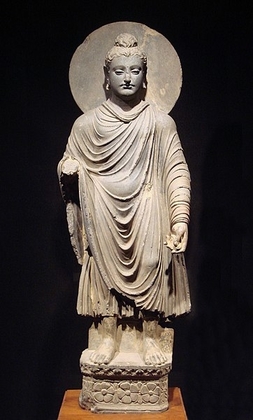Buddhism
Обновлено:
7 сент. 2020

Подробнее здесь
Buddhism is the world's fourth-largest religion with over 520 million followers, or over 7% of the global population, known as Buddhists. Buddhism encompasses a variety of traditions, beliefs and spiritual practices largely based on original teachings attributed to the Buddha and resulting interpreted philosophies. It originated in ancient India as a Sramana tradition sometime between the 6th and 4th centuries BCE, spreading through much of Asia. Two major extant branches of Buddhism are generally recognized by scholars: Theravada (Pali: "The School of the Elders") and Mahayana (Sanskrit: "The Great Vehicle"). Most Buddhist traditions share the goal of overcoming suffering and the cycle of death and rebirth, either by the attainment of Nirvana or through the path of Buddhahood. Buddhist schools vary in their interpretation of the path to liberation, the relative importance and canonicity assigned to the various Buddhist texts, and their specific teachings and practices. Widely observed practices include taking refuge in the Buddha, the Dharma and the Sangha, observance of moral precepts, monasticism, meditation, and the cultivation of the Paramitas (perfections, or virtues). Theravada Buddhism has a widespread following in Sri Lanka and Southeast Asia such as Cambodia, Laos, Myanmar and Thailand. Mahayana, which includes the traditions of Pure Land, Zen, Nichiren Buddhism, Shingon and Tiantai (Tendai), is found throughout East Asia. Vajrayana, a body of teachings attributed to Indian adepts, may be viewed as a separate branch or as an aspect of Mahayana Buddhism. Tibetan Buddhism, which preserves the Vajrayana teachings of eighth-century India, is practised in the countries of the Himalayan region, Mongolia, and Kalmykia.